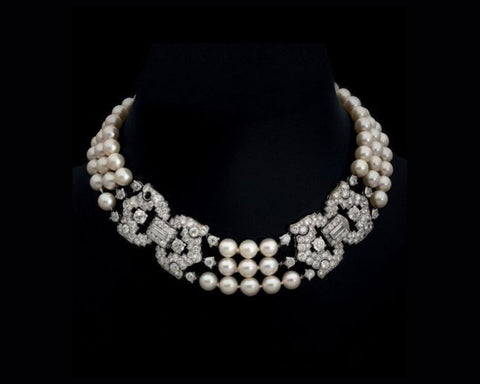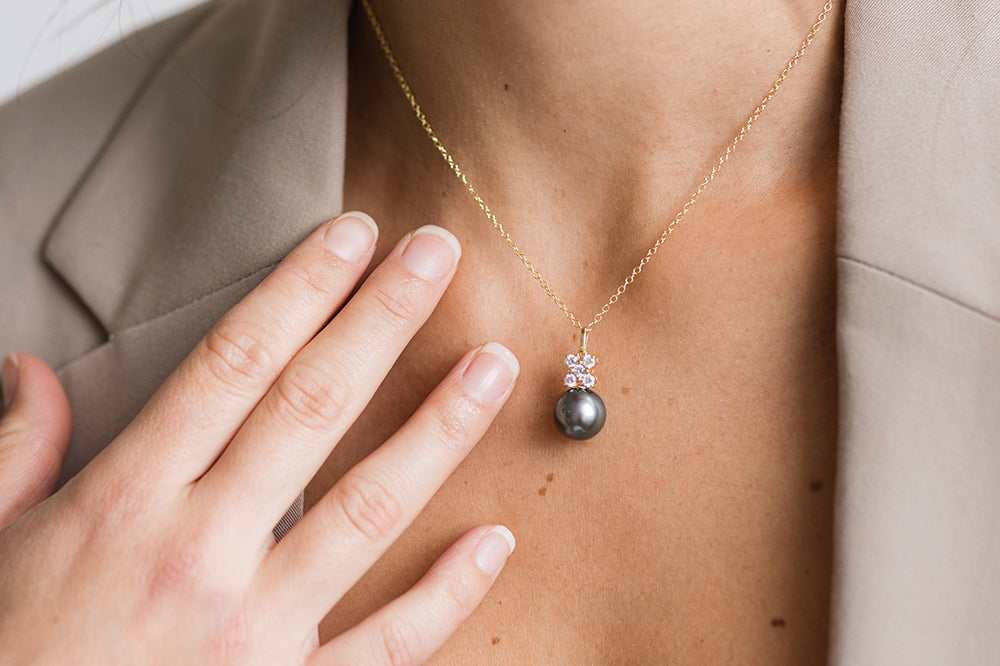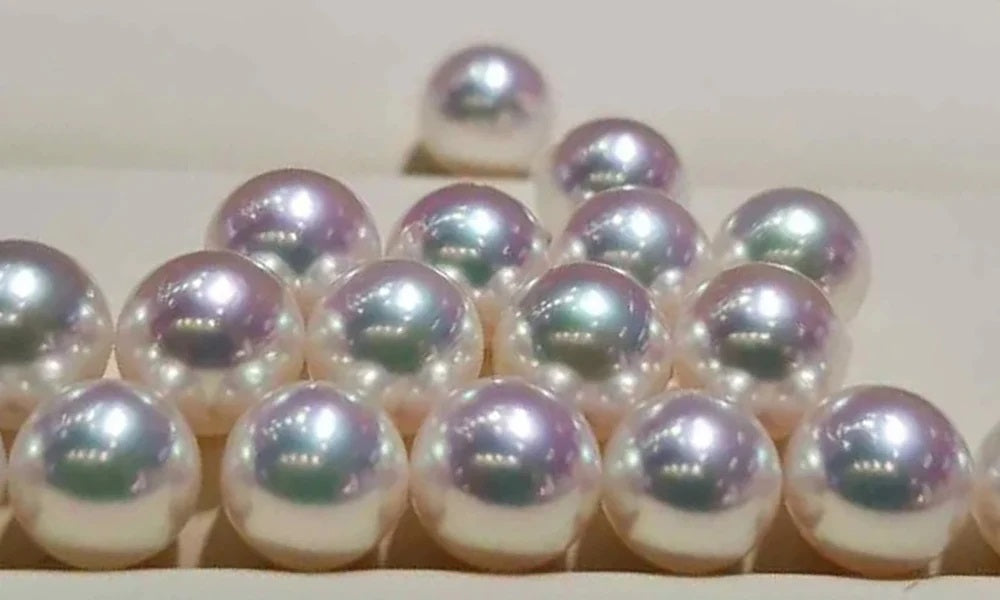
Clean lines, geometric shapes and unconventional colour palettes, Art Deco jewellery as a style has remained fresh and appealing even a hundred years after it first appeared on the jewellery stage. The aesthetic of this design movement was sleek and glamourous, typified by style icons like Coco Chanel wearing her classic tweed two-piece suits with ropes upon ropes of pearls. Interestingly, it was during this era that jewellery started becoming more than an outward symbol of wealth and instead became a statement of style.
The Art Deco Style
The Art Deco style inspired the world of jewellery following the end of World War I. However, the term Art Deco was not coined until after the 1925 Exposition Internationale des Arts Décoratifs et Industriels Modernes in Paris, when jewellery, espousing austere lines, geometric patterns and unconventional abstraction, came to dominate the prevailing design aesthetic.
The style witnessed its heyday during the 1920s and 1930s. While the earlier Art Deco jewellery pieces were feminine, with an inherent softness to the designs, the later ones were defined by their straight lines and bold modernism. The style found its inspiration from different sources including ancient Egypt as well as the cultural arts of Persia, India, Africa, China and Japan and jazz music. All in all, though, Art Deco jewellery tended to be symmetrical, with its audacious play of colours and textures adding an interesting highlight.

From left to right: Natural Pearl, Emerald and Diamond Sautoir, Cartier, Circa 1925 (Image courtesy Christies); Natural Pearl and Diamond Drop Earrings, Van Cleef & Arpels, Circa 1925 (Image courtesy Sotheby’s) Natural Pearl Brooch, Cartier, Circa 1920 (Image courtesy Sotheby’s)
Art Deco Jewellery and Pearls
Pearls are an elegant and timeless gem and easily found a fit with the overall look and feel of Art Deco jewellery. Pearls were worn in many different ways. Woven into choker necklaces, worn as double or triple strand necklaces, styled as sautoirs or used in tassels, studded in brooches or strung into bracelets and wristwatch straps, pearls remained popular throughout the Art Deco period.
With women now wearing their hair short, drop earrings became all the rage. Elongated diamond and platinum settings were often enhanced with drop-shaped pearls as the perfect finishing touch. To a large extent, the luminous iridescence of white pearls, the sheen of platinum and the sparkle of diamonds came to define the very spirit of Art Deco jewels.
Initially, only natural pearls were set into Art Deco jewels. Many high jewellery houses such as Cartier, Chaumet, Boucheron and Van Cleef & Arpels sourced the finest natural pearls for their luxury pieces. In fact, Cartier set exquisite natural pearls in many of their famous “Cartier Style” jewellery pieces.

Cultured Pearl and Diamond Art Deco Necklace, Cartier, Circa 1920s (Image courtesy Pierre Berge & Associates)
Cultured Pearls in Art Deco Jewellery
With the introduction of Mikimoto’s pearls during the 1920s, cultured Akoya pearls also started being used in Art Deco jewellery. Cultured pearls, unlike their natural counterparts, were cheaper and more readily available. In addition, Mikimoto insisted on selling only high quality cultured Akoya pearls. Round, luminous and white, Mikimoto’s cultured pearls were consistently and identically dazzling. This helped increase their popularity among jewellery makers and buyers alike. As a result, from the late 1920s and through the 1930s, many Art Deco jewellery pieces featured cultured instead of natural pearls.
By the end of the 1930s, the Art Deco jewellery style started giving way to a newer look, the Retro style. Even though the Art Deco style lasted a little over two decades in the first half of the 20th century, its influence can still be felt today. Synonymous with the Roaring Twenties and the decadence of the Flapper Era, Art Deco jewellery continues to fascinate collectors and buyers alike, all over the world.
Featured Image: An important Art Deco bracelet, formerly the property of late H.R.H. Princess Margaret, set with cultured Akoya pearls and diamonds, came into the secondary market last year and sold for over ten times its initial sale estimate. This bracelet was worn by Princess Margaret for her official 19th birthday portrait. An interesting detail about this piece was the M (for Mikimoto) that was stamped on its platinum clasp. (Image courtesy Noonans Mayfair)
Reema Farooqui is a jewellery writer who loves pearls and pearl jewellery. You can find her on her website The Culture of Pearls or on Instagram at @thecultureofpearls
![]()
![]()












































